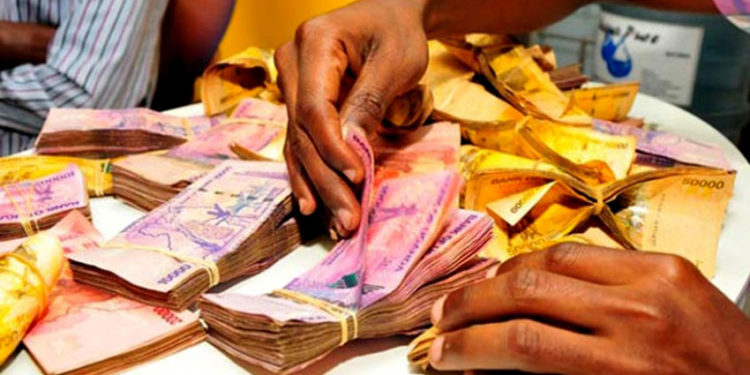In the intricate tapestry of global trade, Uganda’s economic performance in January 2024 emerges as a multifaceted tale, brimming with both triumphs and tribulations.
The nation’s trade balance, while boasting a commendable surplus, finds itself juxtaposed against the towering achievements witnessed in the same month of the previous year.
The statistics unveiled by national authorities paint a vivid picture of Uganda’s trade landscape. January 2024 witnessed a staggering trade surplus of $80.6 million, a significant leap from the modest surplus of $22.3 million recorded in December 2023. However, the resplendence of this surplus is dimmed by the shadows cast by January 2023, when Uganda flaunted a monumental surplus of $180 million. This stark contrast serves as a poignant reminder of the formidable challenges and dynamic nature of global trade.
Delving deeper into the intricacies of Uganda’s trade dynamics reveals a delicate dance between exports and imports. The nation’s surplus was buoyed by higher exports surpassing imports, particularly in trade with the Democratic Republic of Congo, South Sudan, Kenya, Rwanda, and Burundi. Only Tanzania dared to challenge Uganda’s surplus dominance within the East African Community. Meanwhile, the Middle East and the European Union emerged as eager recipients of Ugandan exports, with surpluses of $71.5 million and $44.93 million, respectively. This intricate interplay of trade relationships underscores Uganda’s interconnectedness with the global economy.
Coffee, the crown jewel of Uganda’s export portfolio, emerges as a shining beacon amidst the trade tumult. The February Economic Performance Report by the Ministry of Finance, Planning, and Economic Development lauds coffee’s stellar performance, with a remarkable 30 percent increase in value from $65.94 million in December 2023 to a commanding $85.57 million in January 2024. This surge in coffee’s fortunes is attributed to a delicate balance of price escalation and volume expansion. The average price per kilo ascended from $2.74 to $2.96, while volumes exported soared by an impressive 20 percent, reaching a staggering 480,000 bags.
Yet, amidst Uganda’s export euphoria, ominous clouds loom on the global coffee horizon. Indonesia grapples with disrupted cherry development due to excessive rainfall, while Vietnam faces challenges stemming from decreased land availability, rising expenses, and a shift towards alternative crops. These global tribulations cast a shadow of uncertainty over Uganda’s coffee trade, highlighting the nation’s vulnerability to external factors.
In the realm of regional trade, the East African Community emerges as Uganda’s steadfast ally. Absorbing 38.2 percent of Uganda’s exports, the EAC underscores the importance of regional cooperation in driving economic growth. Kenya, with its lion’s share of 30.4 percent, stands as Uganda’s unwavering champion within the region, exemplifying the strength of bilateral trade partnerships.
As the curtains draw to a close on Uganda’s trade saga, one truth remains abundantly clear – amidst the ebbs and flows of global trade, Uganda’s resilience and adaptability shine through. While challenges abound and uncertainties linger, the nation’s indomitable spirit continues to navigate the intricate web of international commerce, forging ahead towards economic prosperity in an ever-evolving landscape.
Do you have a story in your community or an opinion to share with us: Email us at editorial@watchdoguganda.com













